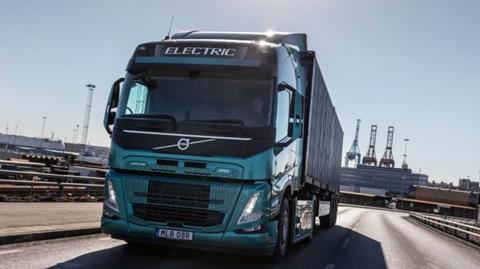
It is unlikely that the industry will achieve zero tailpipe emissions by the government’s 2035 and 2040 deadlines based on the current level at which manufacturers are building electric HGVs, according to Logistics UK.
In a report analysing overall HGV compliance in the UK, the business group said operators are raising concerns about new vehicle availability and manufacturers’ stated lead times, particularly for alternatively-fuelled trucks.
“Transport businesses are concerned about the availability of such vehicles and the necessary infrastructure demands for zero tailpipe emissions nationwide,” the report said. “Industry’s ability to comply with future environmental performance expectations may not lie in the hands of the vehicle operators.”
The government announced last year that all new HGVs must be zero emission at the tailpipe from 2035 for those under 26 tonnes and from 2040 this must apply to all new HGVs over 26 tonnes.
The report said: “Although the availability of zero emission HGVs has been lagging compared to other vehicles, HGV manufacturers have started to make a much broader range of these vehicles available, although not currently at a scale that seems likely to meet the 2035 and 2040 deadlines.
“The lack of available zero, or reduced, emission vehicles is of concern to Logistics UK members with low satisfaction levels for the availability of alternatively fuelled vehicles for both HGVs and vans, along with even lower levels of satisfaction for the supportive infrastructure, necessary to keep these vehicles operational.”
The report also highlighted how the number one MOT defect for HGVs is condition of tyres and for trailers it is brakes.
In addition, recruitment issues persist despite last year’s acute driver shortage easing. Logistics UK said the trend showed an ageing transport manager workforce and problems recruiting younger staff, as well as issues hiring suitably trained HGV mechanics.
“A shortage of appropriately trained commercial vehicle mechanics will not be solved quickly given the training time and experience required to develop these skills,” it said.
[]For more stories tracking the industry journey to decarbonisation see our new Freight Carbon Zero website.













